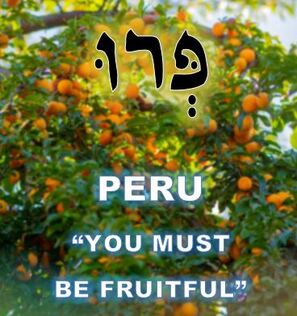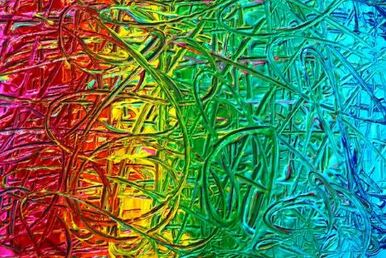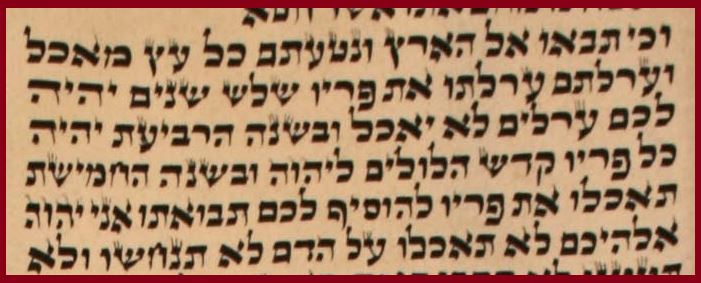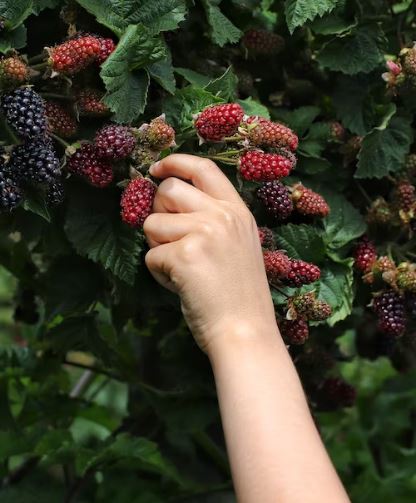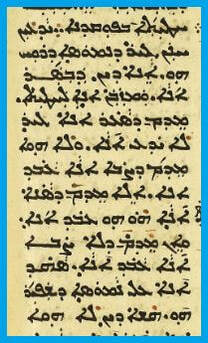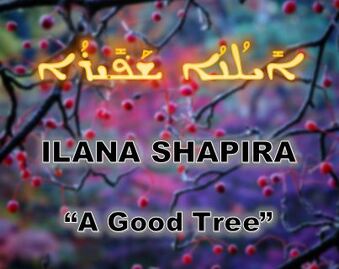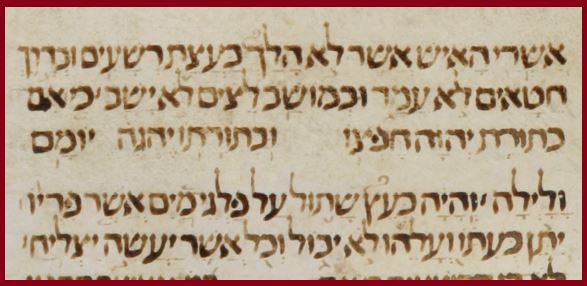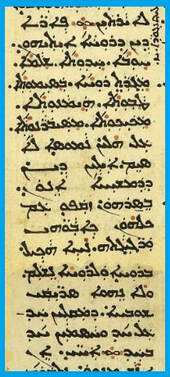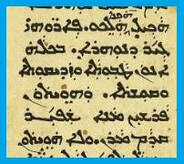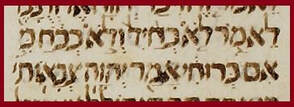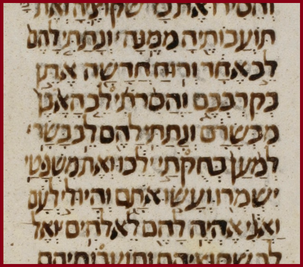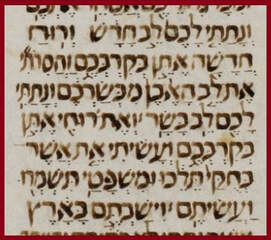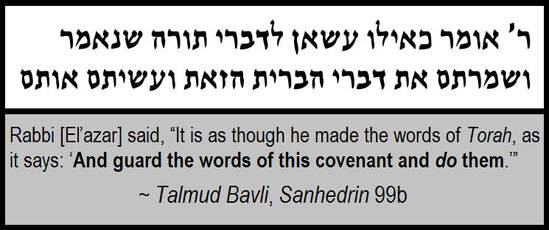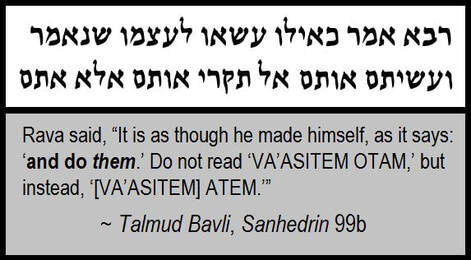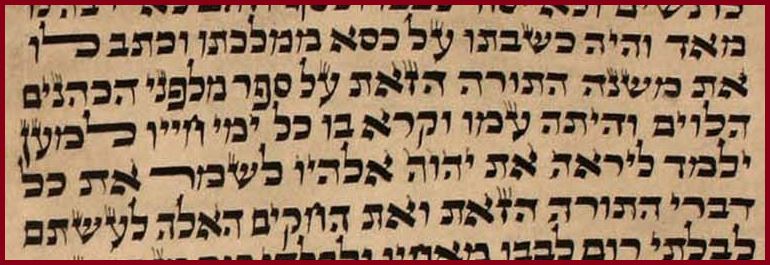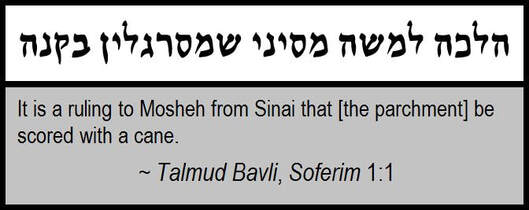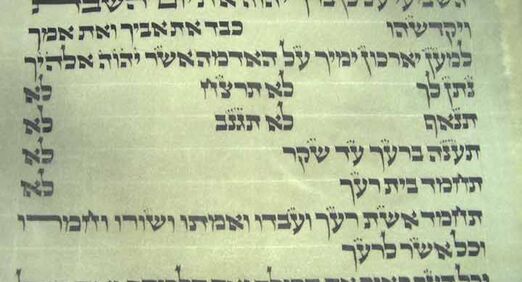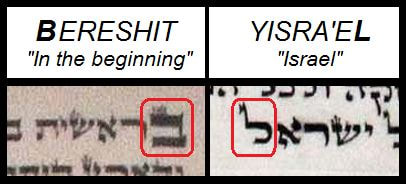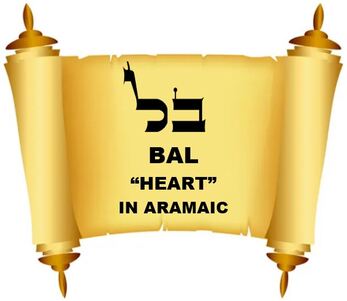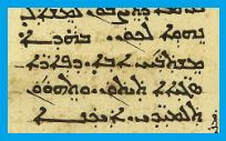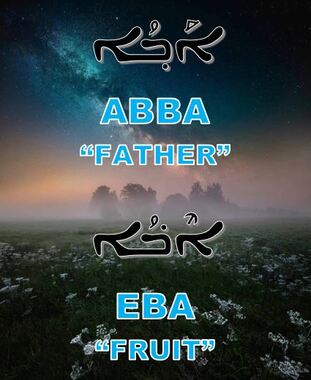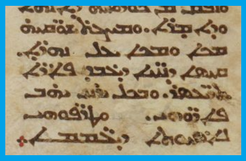BEARING FRUIT
by Jeremy Chance Springfield
2/2/2023
This study is also available in audio.
Believers are branches, growths of a spiritual tree reaching into this physical existence, linking the heavenly realms to the earthly.
Made from the exalted intentions of the highest Mind, man yet lives out those divine dreams in a place of constriction, of pain, and of constant struggle. We exert ourselves in innumerable ways, attempting to realize the heavenly aspect of our nature in even the most common and mundane of acts. Beginning as a growth in the unseen supernal kingdom, we extend like branches of prismatic light through space and time into this physical world. It is here where we must acknowledge that we have come from a place of wonder and righteousness by living in a way that makes the Creator’s higher reality a truth able to be felt even in this lowest of realms.
Made from the exalted intentions of the highest Mind, man yet lives out those divine dreams in a place of constriction, of pain, and of constant struggle. We exert ourselves in innumerable ways, attempting to realize the heavenly aspect of our nature in even the most common and mundane of acts. Beginning as a growth in the unseen supernal kingdom, we extend like branches of prismatic light through space and time into this physical world. It is here where we must acknowledge that we have come from a place of wonder and righteousness by living in a way that makes the Creator’s higher reality a truth able to be felt even in this lowest of realms.
|
Others should see in our deeds and our character traits that we are not native to this fallen state we inhabit. Man was cultivated in the heavenly orchards of faith by the work of the Spirit Himself to bring forth a yield accurately representing the will of the Kingdom in a world that is otherwise lost without it.
The distractions of the flesh and its deceptions can so easily destroy the deeds that would otherwise help remind people of the purpose mankind was given long ago. Our actions often reek of the rot that living only for selfish purposes spreads. We must endeavor to refract the heavenly light into an earthly hue that will welcome the fruits of forever into the boundaries of the now. It is our high responsibility as followers of the Most High and representatives of His will. |
That prime purpose of mankind is stated blatantly in Genesis 1:28.
And Elohim blessed them, and Elohim said to them, “You must be fruitful, and you must increase, and you must fill the earth, and you must tread it and you must rule: with the fish of the sea, and with the bird of the heavens, and with every living creature that crawls upon the earth.”
Take note of the very first command given to humanity. It came with a blessing and is straightforward: “You must be fruitful.” In the Hebrew, this is expressed by a single term in the imperative, meaning it is a demand made of us: PERU. It is merely the common Hebrew word for “fruit,” PERI, conjugated to tell us that we must be fruitful.
The majority of commentators will interpret this as included in the subsequent language about procreating and increasing the human species on the earth. One can legitimately understand the term in that context, but the word itself stands as a direct command, as well, for us to produce fruit. More than being a call to physically replicate we can perceive in it a higher calling: that we make something of spiritual value in the actions of our life.
What that looks like, though, might not be immediately clear. To be spiritually fruitful for one person may mean an entirely different thing than it does to another. One's path may seem straightforward, while another might need to go a more circuitous, winding way to achieve what the Holy One has called him to do. How, then, do we judge that growth? We need a standard by which we can judge such an important calling upon our lives. Thankfully, Scripture provides excellent sentiments for us to consider that can clarify what it means for us to bear fruit.
What that looks like, though, might not be immediately clear. To be spiritually fruitful for one person may mean an entirely different thing than it does to another. One's path may seem straightforward, while another might need to go a more circuitous, winding way to achieve what the Holy One has called him to do. How, then, do we judge that growth? We need a standard by which we can judge such an important calling upon our lives. Thankfully, Scripture provides excellent sentiments for us to consider that can clarify what it means for us to bear fruit.
This is wonderfully seen in how the Torah speaks of how we are to treat trees that are planted on purpose for fruit. In Leviticus 19:23-25, we find the command on how to handle a tree that is being fruitful, and by looking at the details thereof, we can apply them in our own lives to help us be who He wishes us to become in this world.
24 And in the fourth year all its fruit shall be holy, for praising YHWH.
25 And in the fifth year you shall eat of its fruit, so it brings you its increase. I am YHWH your Elohim.
25 And in the fifth year you shall eat of its fruit, so it brings you its increase. I am YHWH your Elohim.
The fruit of a tree is not always immediately accessible for human consumption. Although planted on purpose and tended with care, the fact that a fruit tree is seen to have ripe fruit hanging from its limbs is not in itself a sign that it is fruitful, nor that it has become fit for a human to benefit from its produce. The Creator has set rules in place here that limit our partaking of the fruits until a specific period of time has passed.
|
The reason has to do with the nature of the fruit grown by the tree, which the Hebrew text tells us is “uncircumcised” for the first three years of its production. This odd use of terminology is intended to mean that the fruit is “concealed” or “off-limits” to human consumption. Although it may look delicious and ready to harvest, for the first three years of its production season, the fruit is in no way intended to bless others.
The fourth year sees it move into a new category: it is fit only to bring praise to the Creator Himself. We do not eat of it ourselves, for in its new state it is only acceptable as an honorable thing before the Most High. It is His fruit, and we acknowledge that truth first. |
Only in the fifth year does the fruit finally mature so as to be a blessing directly to mankind. It is then that the text mentions that the fruit can be eaten so that it brings its “increase.” That is, once we do what we have been told and treat the tree’s fruit in the proper way, then we will see the fruitful nature of the tree—its inherent potential that has been stored up and maturing for five whole years.
These things are spiritually significant to us. Everything in the Word has a physical and a spiritual side. It begins in the highest spiritual realms and extends down, so to speak, into the physical. Although we originate in the heavens, we’re locked physically and mentally in this physical world, so we must seek the Spirit Himself—the Creator—to connect to the spiritual side of things the way He intended.
Paul speaks of this in Romans 7:14-16.
Paul speaks of this in Romans 7:14-16.
|
14 For we recognize that the Instruction is of the Spirit. Yet I am of the flesh, and I am sold to sin.
15 For the thing that I perform I do not recognize, and that thing that I do not desire, I do. Instead, the thing that I hate—it is what I do. 16 And if the thing that I do not desire is what I do, I testify concerning the Instruction that it is good. |
Paul explains well that what is good is doing what the Torah tells us to do. Sin makes that difficult, even as believers, because we are conditioned in body and mind to do what is against the Torah. But when we acknowledge that we don’t want to act that way, we validate that the Torah is the proper way—living by His higher spiritual Word is what man needs to do.
The term Paul used here in the Aramaic text for “good” is SHAPIR, and literally means “beautiful.” This is important to note, as well, for it helps us to see further insights into what it means for us to be “fruitful.”
This idea connects back to Yeshua’s words in the Aramaic of Matthew 12:33, where he also uses the context of “trees” and “fruit” in a significant way.
The term Paul used here in the Aramaic text for “good” is SHAPIR, and literally means “beautiful.” This is important to note, as well, for it helps us to see further insights into what it means for us to be “fruitful.”
This idea connects back to Yeshua’s words in the Aramaic of Matthew 12:33, where he also uses the context of “trees” and “fruit” in a significant way.
Obviously, “fruits” are symbols for “actions,” so the question must be asked: what kind of actions are specifically being implied by this? Perhaps the best answer is to let the words used speak for themselves in how they are utilized elsewhere. The phrase of importance here in the Aramaic is ILANA SHAPIRA “a good tree,” or more literally, “a beautiful tree.” This specific phrase appears to be an Aramaic reference to one used in the Peshitta’s Aramaic version of Leviticus 23:40, where it describes one of the species whose fruit we are commanded to worship with during the festival of Sukkot “Tabernacles” as being ILANE SHAPIRA “…good trees.”
The identical phraseology hints that the spiritual nature of man is to reflect the qualities used in the fruit with which we find acceptable to praise the Creator. It is a commandment to take the produce of our fruit trees and elevate them in use to bring worship of the Holy One down into this world—and to do likewise with the spiritual fruit that develops in us.
Yeshua’s claims that a man, who is likened to a tree, has deeds that are similarly likened to a fruit, is actually derived from Psalm 1:1-3.
2 For in the Torah of YHWH is his desire, and in His Torah he meditates day and night.
3 And he shall be as a tree planted by divided waters, which gives his fruit at its season, and his leaf shall not wither, and all which he shall do shall succeed.
3 And he shall be as a tree planted by divided waters, which gives his fruit at its season, and his leaf shall not wither, and all which he shall do shall succeed.
The Torah provides us with what we need to bear fruit. It is of the Spirit, and so if we want to produce spiritual fruit, it will be expressed in the performance of the Torah to some degree. It may not be immediately recognizable as a specific commandment, however, it will be blossoming in us from the Spirit, the Source behind the Torah that has flowed down to us from the supernal realms of heaven. This is made clear when we reconsider what Leviticus 19:23-25 discussed in how we are to treat trees that are still in the process of producing fruit that is not legally fit for human consumption. Just as we know the growth will take time, we also know that the fruit that will come can only be truly visible at the proper season. Knowing this, we do not judge another whose fruits may be not as prolific as someone else’s, trusting that the growth process is occurring and will bring the correct spiritual yield when the time comes.
Paul speaks of this reality to the congregations in Galatia, as we see in Galatians 5:22-26.
Paul speaks of this reality to the congregations in Galatia, as we see in Galatians 5:22-26.
|
22 Yet, the fruits of the Spirit are love, joy, peace, lengthening of spirit, pleasantness, goodness, faithfulness,
23 meekness, patience; against these no Instruction has been set. 24 Yet, those who are of the Messiah—their flesh they have crucified, with all its passions and its lusts. 25 Therefore, we should live in the Spirit, and to be completed by the Spirit, 26 and not be emptily glorying, making light of one another, or envying one another. |
This is the widely known list popularly referred to as "the fruits of the Spirit," but he completes the list of fruits in Ephesians 5:9-10.
Again, the word here in Ephesians 5:10 for “good” is SHAPIR—“beautiful.” It is our purpose as spiritual beings producing spiritual fruit that we exemplify the Torah’s beautiful dictates whether we are Jewish or Gentile. What we do may not look exactly like a Jewish performance of the Torah, and that is okay. What is important is that we were told not to be making light of one another. Everybody is different and their maturation of spiritual fruit will look a little different or be slower or faster than another believer’s expression of a spiritual life. We must be mindful of that and discerning of the Spirit’s work in their life, not condemning them for what we think they should look like by our own personal experience of a spiritual walk. As long as they are producing fruit, that is ultimately what matters. Everyone must be reaching for His will in some capacity.
When one is in error, we are commanded to correct so that they will be convicted to do what is right. But we must not confuse conviction with condemnation. In Him is no condemnation, so we must be careful in how we handle believers whose fruits may not be as mature as our own. So long as they are producing them, then we should be grateful and work with each other to grow even further.
This can be seen well in how immature fruit-bearing trees were said to be treated during Temple times. The ancient text of the Mishnah, in Maaser Sheni 5:1, details what was done.
In order to emphasize which state a fruit tree was in regarding its maturity and accessibility to its fruit, the ancient agricultural practice of Israel involved using dirt clods and potter’s clay scattered around the trunk as a status sign to the observer. This is of curious interest in that the Creator—the Heavenly Potter—is still at work forming the necessary elements in the tree and its fruit that will ultimately make it suitable for human use.
All of this shows us that we need to be careful how we assess someone’s fruit, especially for young believers, for the Potter’s work of forming even the most essential or basic of fruits is an on-going process of a timeframe we must not hasten, but should let the Spirit work through in proper order and season.
Any attempt to artificially expedite the development of spiritual fruit will result in negative experiences. What growth occurs in every believer must be an expression of the Spirit and not the flesh. Zechariah 4:6 tells us this in a famous phrasing.
All of this shows us that we need to be careful how we assess someone’s fruit, especially for young believers, for the Potter’s work of forming even the most essential or basic of fruits is an on-going process of a timeframe we must not hasten, but should let the Spirit work through in proper order and season.
Any attempt to artificially expedite the development of spiritual fruit will result in negative experiences. What growth occurs in every believer must be an expression of the Spirit and not the flesh. Zechariah 4:6 tells us this in a famous phrasing.
This concept is what we see expressed by Yeshua in his famous sermon recorded in Matthew 5:20-48. It is a lengthy presentation which I will not quote in full here, but the implications are obvious and meaningful: merely performing the surface letter of the commandment does not equal a true fulfillment of what the Creator intended. One must ascend higher in application, drawing the spiritual reality out into the physical. He took the performance of the Torah to a higher degree, showing us the Spirit behind any obedience to a physical letter. He validated that the Torah is of the Spirit and can only properly be done by performing it in a spiritual way.
That is the fruit of the Spirit, and it aligns with what Ezekiel 11:19-20 & 36:26-27 tells us.
That is the fruit of the Spirit, and it aligns with what Ezekiel 11:19-20 & 36:26-27 tells us.
|
19 And I shall give to them one heart, and a new Spirit I shall place in your innermost, and I shall remove the stone heart from their flesh, and give them a heart of flesh,
20 so that in My statutes they shall walk, and My judgments they shall guard, and perform them, and they shall be for Me a people, and I shall be for them Elohim. |
|
26 And I shall give to them a new heart, and a new spirit I shall place in your innermost, and I shall remove the stone heart from their flesh, and shall give to them a heart of flesh,
27 and My Spirit I shall place in your innermost, and make you to walk in My statutes, and My judgments you shall guard, and perform them. |
The Spirit is given so that we perform the Torah. Obviously, by the time Ezekiel wrote what he did, the Torah had already been firmly established as a covenant for the people, so the promise that the Creator would provide the Spirit to keep the commands shows us that He wanted a deeper expression of His Torah—the spiritual concepts that go beyond just the physical, so that we draw down the true intent of the Spirit in performing the Torah.
|
To have the Spirit at work in us causing us to bear spiritual fruits is to merely say that we are performing the edicts of heaven in the way the Creator of the heavens intended them to be enacted. We are not depending on our own understanding of how His will must be done, or resting in the fact that we did "enough" by just meeting the written criteria. It is more!
This ultimately is a justification of His will and His right to the Kingdom rule of all creation. The fruit of the Spirit, therefore, is man’s heart expressing His heavenly will in natural obedience. |
This aligns with what Yeshua stated in Matthew 6:10, when he taught the disciples how to pray.
We are to seek the desire of the Spirit. Our prayer should be to align with His wants and desires and see them realized in the here and now. The Creator’s will is meant to be performed here in this physical world, drawn down from the heavenly realms by our mindful acts to make the earthly as much like the heavenly as we possibly can in our individual journeys of faith.
The Torah presents this idea in a truly beautiful way in Deuteronomy 29:9.
The Hebrew is simple, yet so very rich in what it is conveying.
The Talmudic rabbi El’azar provided an important observation of this passage, as recorded in the Talmud Bavli, Sanhedrin 99b.
The Talmudic rabbi El’azar provided an important observation of this passage, as recorded in the Talmud Bavli, Sanhedrin 99b.
The term VA’ASITEM can mean “and do them,” or “and make them,” based solely on how one wishes to translate the concept.
The text goes on and offers an additional insight by another Talmudic rabbi.
The text goes on and offers an additional insight by another Talmudic rabbi.
Here, the rabbi points out that the letters making up the term OTAM “them” can also be equally translated as ATEM “yourselves.” The idea would thus be that by guarding the Torah through producing the fruit of the Spirit, we are “making ourselves.”
Now, the Torah does contain a command that a Jewish king is to make a Torah scroll, as seen in Deuteronomy 17:18-19.
Now, the Torah does contain a command that a Jewish king is to make a Torah scroll, as seen in Deuteronomy 17:18-19.
19 And it shall be with him, and he shall read in it all the days of his life, so that he learns to revere YHWH his Elohim, to guard all [the] words of this very Torah, and these statutes, to do them.
There, the command is specifically for a king to do so, but we know spiritually, believers are intended to be just that, as recorded in Exodus 19:6, and reiterated later 1st Peter 2:9.
So, we are essentially called to embody the Torah by producing the fruit of the Spirit. We can even see this in the very construction of a Torah scroll. The scroll itself is made from the skin of a kosher animal, and that parchment upon which is written the Torah is attached to two rods on either end. These rods are individually known as an Eitz Chayim—that is, a “tree of life.” The plural form is Eitzei Chayim – “trees of life.”
So, we are essentially called to embody the Torah by producing the fruit of the Spirit. We can even see this in the very construction of a Torah scroll. The scroll itself is made from the skin of a kosher animal, and that parchment upon which is written the Torah is attached to two rods on either end. These rods are individually known as an Eitz Chayim—that is, a “tree of life.” The plural form is Eitzei Chayim – “trees of life.”
Extended between the Eitzei Chayim “trees of life” is the parchment (the flesh of a kosher animal) upon which the Torah is written. The letters that actually make the scroll holy are written in a specific manner. The parchment is lightly scored with visible lines. This is done not with ink, but with a tool known as a Sargel, which is an instrument made using a cane or reed that has a thorn (or thorns) sticking out of it, that are set equidistant from one another to create shallow incisions into the already thin parchment when it is drawn lightly over the thin animal flesh. These lines are known as a sirtut or serta in the singular, and according to the minor Talmudic tractate of Soferim 1:1, must be applied to a scroll for it to be considered kosher to use, going as far back as Moses and his reception of the Torah at Mount Sinai.
Depending on the age of the scroll, usage, and how lightly the original lines were scored into the parchment, one can usually still see the scoring in that flesh when looking at a Torah scroll even decades or centuries after they were made.
The accompanying photo from Exodus 20 clearly shows the scoring in the scroll.
The accompanying photo from Exodus 20 clearly shows the scoring in the scroll.
What does any of this have to do with us bearing fruit?
The link comes in the detail that Hebrew is written in a unique manner. Not only is it written from right to left, it is also written from the top down. Each letter must be written by the scribe beginning at its top and working down from there. Why? Because Torah came to us from above—that is, from the supernal realms of the Spirit. This way of writing reflects that divine origin.
Additionally, the letters must be written not sitting on the sirtut but hanging from the sirtut. In English we write our letters sitting on the lines on a piece of paper. In a Torah scroll, or mezuzah, or tefillin scrolls, Hebrew is always written hanging down from the shallow sirtut scored into the parchment.
The letters are thus the “fruit” that hangs from the Eitzei Chayim – “the trees of life.”
The link comes in the detail that Hebrew is written in a unique manner. Not only is it written from right to left, it is also written from the top down. Each letter must be written by the scribe beginning at its top and working down from there. Why? Because Torah came to us from above—that is, from the supernal realms of the Spirit. This way of writing reflects that divine origin.
Additionally, the letters must be written not sitting on the sirtut but hanging from the sirtut. In English we write our letters sitting on the lines on a piece of paper. In a Torah scroll, or mezuzah, or tefillin scrolls, Hebrew is always written hanging down from the shallow sirtut scored into the parchment.
The letters are thus the “fruit” that hangs from the Eitzei Chayim – “the trees of life.”
This is what we are to embody in letting the Spirit develop fruit in us: we are to draw the heavens down to the earth, as Yeshua stated we should thus pray. In this way, we effectively "make the Torah" or "make ourselves" by our bearing of His spiritual fruit. We become that scroll itself declaring His will to the world.
The reality of this spiritual truth can be seen beautifully in another way, connecting back to the promises He made to His people in Ezekiel 11:19-20 and 36:26-27, where He stated that the Torah would be performed by us because He would give us a "heart of flesh."
When one unrolls a scroll of Torah, the first word seen is the word Bereshit "In the beginning." The last word seen in the Torah is the word Yisra'el "Israel." The first letter of the Torah is therefore the letter Bet (B) of Bereshit, and the last letter of the Torah is the letter Lamed (L) of Yisra'el.
The reality of this spiritual truth can be seen beautifully in another way, connecting back to the promises He made to His people in Ezekiel 11:19-20 and 36:26-27, where He stated that the Torah would be performed by us because He would give us a "heart of flesh."
When one unrolls a scroll of Torah, the first word seen is the word Bereshit "In the beginning." The last word seen in the Torah is the word Yisra'el "Israel." The first letter of the Torah is therefore the letter Bet (B) of Bereshit, and the last letter of the Torah is the letter Lamed (L) of Yisra'el.
If one were to take those two letters and read them from right to left as if they formed a word, the result would be the Hebrew term LEV, meaning "heart." In this manner, stretched forth on the flesh of the parchment, contained within the "heart" is the entirety of the Torah!
Additionally, if one were to read those same two letters from left to right, the result would be the Aramaic term BAL, which also means "heart" - a usage seen once in Daniel 6:15 (verse 14 in English versions). In the same manner, then, stretched forth on the flesh of the parchment is the "heart" in which is contained the entirety of the Torah!
His Words are to be written upon our hearts, as Deuteronomy 6:6 blatantly commands us. A spiritually fruitful person, like a Torah scroll, will therefore bear the fruit of the Spirit as ultimately performed in the highest expression of the Torah.
This is also expressed in the words of Proverbs 11:30.
It is our purpose to produce fruit that will glorify Him, no matter what stage of our walk we may be in at the time. All of this is so that we bring His Kingdom into this world. The fruit of a tree is not for the tree—the tree does not manifestly benefit from the fruit. The fruit is for the people and animals around it. So too is our fruit of the Spirit. It comes from Him into this world, reflecting the heavenly realms, and aides those in need.
By bearing spiritual fruit we bring glory to the Father, as Yeshua stated in John 15:8.
By bearing spiritual fruit we bring glory to the Father, as Yeshua stated in John 15:8.
Implied also in this passage is a beautiful insight. Yeshua claimed that our bringing forth much fruit would glorify the Father. The Aramaic term for “Father” is ABBA. However, if the term is pronounced instead as EBA, the meaning changes to “Fruit.”
EBA is not a common Aramaic word for “fruit,” but it seems in this passage to be an implied word-play based on the presence of ABBA and the usage of PIRE “fruits” here in the text. This suggests the idea that the original spiritual Source for our fruit is glorified when we bring His nature into the world He created. The Father / Fruit is Spirit, and therefore we must bear His fruit of the Spirit in such a way that glorifies Him.
The final result of this reality is presented beautifully at the end of the New Testament, where we read of a vision John was given in Revelation 22:2 of the New Jerusalem.
Notice that the tree of life grows on either side of the river. Instead of a single Eitz Chayim, then, the vision actually shows Eitzei Chayim—“trees of life,” which produce all the necessary fruit the Kingdom requires. This is a symbolic representation of a Torah scroll from which hangs the fruits of the Spirit--the acts we are called to perform that sustain the world.
As believers who live according to His will, drawing down the Spirit to empower us in this life, we live out this great hope in our day to day lives by bearing the fruits of the Spirit. As we grow and mature in the ways of righteousness, we offer from the Spirit those fruits which similarly bring healing and transformation to a world in need of His Kingdom.
May we go and bear much fruit!
As believers who live according to His will, drawing down the Spirit to empower us in this life, we live out this great hope in our day to day lives by bearing the fruits of the Spirit. As we grow and mature in the ways of righteousness, we offer from the Spirit those fruits which similarly bring healing and transformation to a world in need of His Kingdom.
May we go and bear much fruit!
All study contents Copyright Jeremy Chance Springfield, except for graphics and images, which are Copyright their respective creators.


